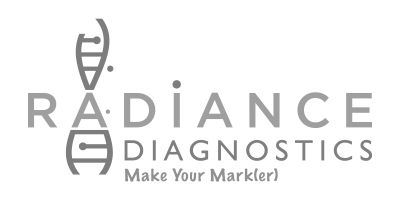Description
Rheumatoid Factor (RF) Test
A rheumatoid factor (RF) test looks for rheumatoid factor (RF) in a sample of your blood. Rheumatoid factors are proteins made by the immune system.
Normally, your immune system makes proteins called antibodies to attack germs that could make you sick. However rheumatoid factors are antibodies that sometimes attack healthy cells and tissues in your body by mistake. When this happens, you have an autoimmune disorder.
Not everyone has rheumatoid factors in their blood. And some people who have them are healthy. But if you have certain symptoms and higher levels of rheumatoid factors, you may have an autoimmune disorder or another health problem related to high RF levels.
RF testing is mostly used with other tests to help diagnose rheumatoid arthritis. Rheumatoid arthritis (RA) is a type of autoimmune disorder that damages your joints and causes pain, swelling, and stiffness. It is a chronic (long-lasting) condition that can also affect your organs and cause other symptoms.
High levels of rheumatoid factors may also be a sign of other autoimmune disorders, certain infections, and certain types of cancer.
Other names: RF Blood Test
What is it used for?
An RF test is often used to help diagnose rheumatoid arthritis and other autoimmune disorders. RF testing may also be used to understand how severe rheumatoid arthritis may be and whether it’s likely to affect organs. An RF test alone can’t diagnose any health problems.
Why do I need an RF test?
You may need an RF test if you have symptoms of rheumatoid arthritis. Symptoms often begin in the wrists, hands, and feet. They usually affect the same joints on both sides of the body and tend to come and go.
Symptoms of rheumatoid arthritis may include:
- Joint pain
- Tenderness, swelling, and warmth of the joint
- Joint stiffness that lasts longer than 30 minutes
- Fatigue
- Occasional low fevers
- Loss of appetite
- Problems outside of the joints may include dry eyes or mouth, firm lumps under the skin, or anemia
You may also need an RF test if you’re having tests to diagnose another condition that can cause high levels of rheumatoid factor, such as:
- Other autoimmune disorders, including:
- Sjögren syndrome
- Lupus
- Scleroderma
- Juvenile idiopathic arthritis in children and teens
- Chronic infections, including:
- Hepatitis C (liver)
- Tuberculosis (mostly affects the lungs)
- Endocarditis (heart)
- Certain types of cancer, including leukemia
What happens during an RF test?
A healthcare professional will take a blood sample from a vein in your arm, using a small needle. After the needle is inserted, a small amount of blood will be collected into a test tube or vial. You may feel a little sting when the needle goes in or out. This usually takes less than five minutes.
At-home tests for rheumatoid factor are available. The test kit provides everything you need to collect a sample of blood by pricking your finger. You’ll mail your sample to a lab for testing. If you do a home test, it’s important to share your results with your healthcare provider.
Will I need to do anything to prepare for the test?
You don’t need any special preparations for an RF test.
Are there any risks to the test?
There is very little risk to having a blood test. You may have slight pain or bruising at the spot where the needle was put in, but most symptoms go away quickly.
What do the results mean?
An RF test alone cannot diagnose any conditions. To make a diagnosis, your provider will look at the results of other tests along with your symptoms and medical history.
A negative (normal) result means that you have little or no rheumatoid factor in your blood. But that doesn’t rule out rheumatoid arthritis or another health problem. Many people with rheumatoid arthritis have little or no rheumatoid factor. If you have symptoms of rheumatoid arthritis, but your RF test results are normal, your provider may order more tests to make a diagnosis.
A positive (abnormal) result means that a higher level of rheumatoid factor was found in your blood. This doesn’t always mean that rheumatoid factors are causing your symptoms. But the higher your RF test results, the more likely it is that you have a condition linked to rheumatoid factors. Your provider may do more tests to find out if you have:
- Rheumatoid arthritis or another autoimmune disease
- A chronic infection
- Certain cancers
Learn more about laboratory tests, reference ranges, and understanding results.
Is there anything else I need to know about an RF test?
An RF test is not used to diagnose osteoarthritis. Although rheumatoid arthritis and osteoarthritis both affect the joints, they are very different diseases. Osteoarthritis is not an autoimmune disease and does not involve rheumatoid factor. Researchers aren’t sure what causes osteoarthritis. It mostly affects older adults.
Source: MedlinePlus, National Library of Medicine
MedlinePlus brings together authoritative health information from the National Library of Medicine (NLM), the National Institutes of Health (NIH), and other government agencies and health-related organizations
https://medlineplus.gov/lab-tests/rheumatoid-factor-rf-test/


